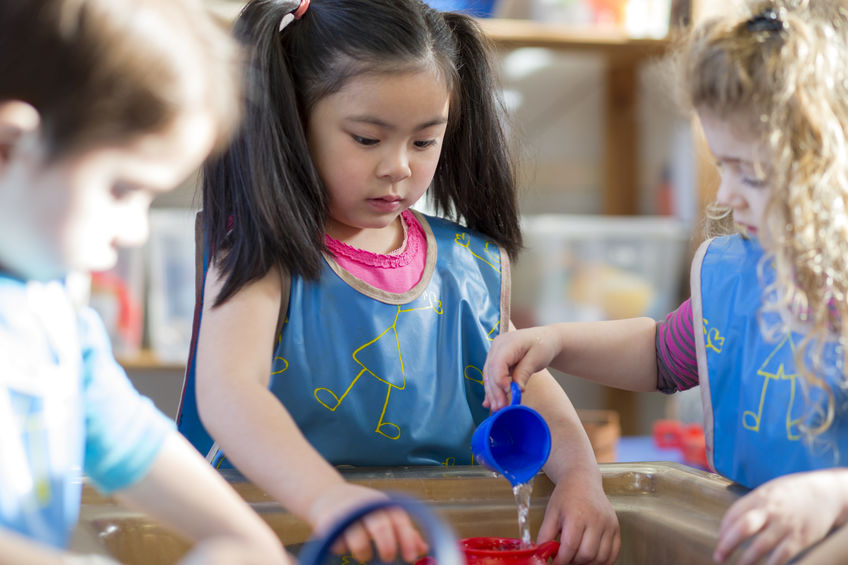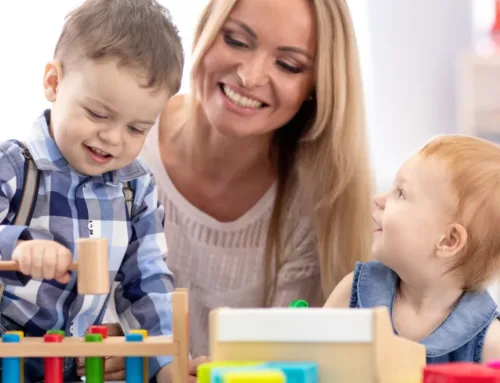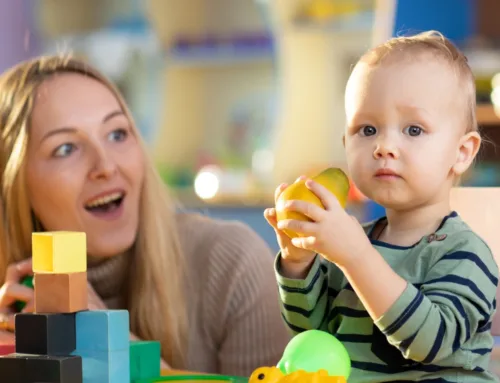Sensory play has an important role in development of your child. When you talk about the senses, we can instantly rattle off: sight, smell, hearing, touch, and taste. In order to help your child’s development you can incorporate any of these into sensory play.
The Role of Sensory Play
All children can benefit from sensory play and not just children who have difficulty with sensory integration. Certain groups of children, such as those who have autism or those who have sensory integration dysfunction disorder, who have specific difficulty making sense of and organizing all the stimuli that come at them via their senses.
The truth is, all children need help learning how to use their senses.
From the day they are born, children are designed to explore the world via their senses. That’s why babies and toddlers touch everything and what to put things in their mouths. This is also why kids make funny noises with their mouths and experiment with how the world sounds with their fingers stuck in their ears. It’s why your child spins in circles until they’re so dizzy, they fall, then get up and do it again. Children are constantly exploring the world around them using their senses.
Engaging all Senses
When they think of sensory play, we have a tendency to immediately picture sand and water tables or kids playing with clay and play dough, but these really only. focus on touch, and it is about the other senses as well.
There are ways to utilize all of your senses like the sharp scent of vinegar involved in a science experiment, mixing colors of water during a color mixing experiment, or the texture and smells of scratch and sniff painting. All of these are are ways of appealing to your child’s senses.
Sensory exploration is a child’s way of examining, discovering, categorizing, and making sense of the world, and it’s beneficial to provide them with opportunities for sensory play.
Language Skills
Playing with different types of textures, tastes, and objects can help your child build new ways of talking about the world. Suddenly, that tree in your backyard is more than a tree, instead it’s a sapling with smooth bark, or it’s a pine tree with rough bark and a sharp pine scent. Water isn’t just wet, it can be rough (waves), slippery with bubbles, or cold and translucent when frozen.
Tastes, too, can build your child’s language skills. No longer does she want hot dogs for dinner, but she wants something tangy or salty or sweet, but certainly not bland or bitter.
Fine Motor Skills
There are two main types of motor skills your child develops:
1. Fine Motor Skills: These require the ability to use and coordinate small muscle groups and are important for writing, shoe-tying, buttoning, and zipping, among other things.
2. Gross Motor Skills: These deal with the coordination of large muscle groups and are responsible for activities like running, walking, etc.
Calming Effects
Have you noticed that your child is calmer after bath time or that, after they’ve had a particularly rough session of jumping around the room, banging into furniture, crashing onto his bed or into pillows? Does your child seems a little more grounded?
While you might think this type of sensory play is the crazy, this type of sensory play is actually calming for kids. This can actually help them regulate their internal discomfort, whether that discomfort was boredom, restlessness, or some other type of agitation.
At Precious Memories Preschool of Sandy Hollow PreSchool of Sandy Hollow, we offer a special place for children to not only grow and develop along the way, but a place for them to CELEBRATE each and every step. If you are interested in enrolling your child in our program please fill out the form on this page or call us at 860.572.9958.







